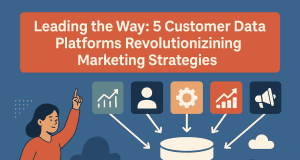In today’s fast-paced digital landscape, marketers face the challenge of reaching target audiences efficiently while managing a plethora of tasks. Enter marketing automation tools—powerful solutions designed to streamline processes, enhance effectiveness, and drive conversions. This article explores how these tools can reshape your marketing campaigns and unlock unprecedented efficiency.
The Need for Automation
Marketing strategies often require juggling numerous elements: content creation, audience segmentation, lead tracking, and performance analysis. As campaigns grow in complexity, the risk of human error increases and resources become strained. This is where marketing automation tools come into play.
1. Streamlined Campaign Management
Automation tools offer centralized dashboards that allow marketers to manage campaigns from a single platform. Features such as drag-and-drop builders help create, schedule, and launch marketing campaigns effortlessly. This streamlining significantly reduces the time spent on mundane tasks, enabling marketers to focus on strategy and creativity.
2. Enhanced Lead Generation and Nurturing
Marketing automation excels in capturing and nurturing leads. Tools like HubSpot, Marketo, and ActiveCampaign allow for the automatic collection of lead data from various sources—like website forms, social media, and emails. They can also segment audiences based on behavior, demographics, and engagement levels.
Once leads are captured, automation tools enable personalized nurturing through targeted content delivery. By sending tailored emails at appropriate times in the customer journey, businesses can maintain engagement and significantly improve conversion rates.
3. Data-Driven Insights and Analytics
One of the most significant advantages of marketing automation is the ability to gather and analyze data in real time. These tools provide comprehensive analytics that track key performance indicators (KPIs) such as open rates, click-through rates, and conversion rates.
This data can be instrumental in adjusting strategies. For example, if a particular email campaign underperforms, marketers can quickly analyze user interactions and pivot accordingly, optimizing future campaigns based on insights gained.
4. Consistent Customer Journeys
Today’s consumers expect personalized experiences throughout their journey. Marketing automation tools facilitate this by ensuring that messaging remains consistent across various channels—be it email, social media, or website. Automated workflows ensure that customers receive relevant content that resonates with their interests and behaviors, fostering brand loyalty and improving retention.
5. Resource Efficiency and Cost Savings
By automating routine tasks, businesses can reallocate resources toward more strategic initiatives. This not only enhances the productivity of marketing teams but also reduces the need for extensive manpower, leading to significant cost savings. Additionally, with improved campaign performance, the return on investment (ROI) from marketing efforts tends to increase, justifying the initial costs associated with these tools.
6. Seamless Integration with Other Tools
Modern marketing automation platforms often integrate with various other tools and software, including Customer Relationship Management (CRM) systems, content management systems, and social media platforms. This connectivity enhances data flow and ensures that marketing efforts align with overall business objectives, contributing to a more cohesive strategy.
Conclusion
In an era where efficiency, personalization, and data-driven decisions reign supreme, marketing automation tools are not just an option; they are a necessity for businesses looking to thrive. By embracing these technologies, marketers can unlock new levels of productivity and effectiveness, transforming their campaigns into finely tuned machines that drive meaningful results. As the marketing landscape continues to evolve, the adoption of automation will undoubtedly become a core aspect of successful marketing strategies.







